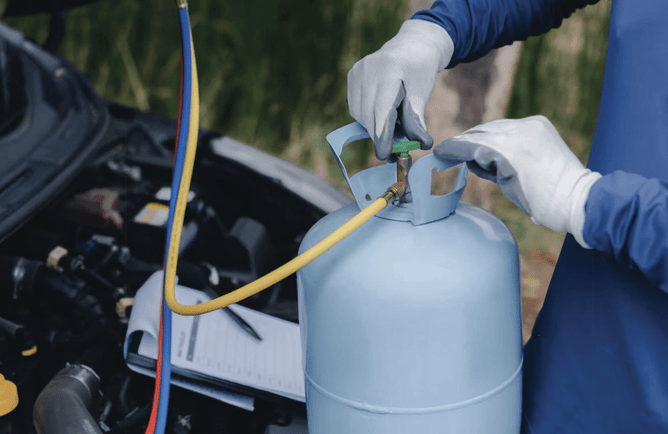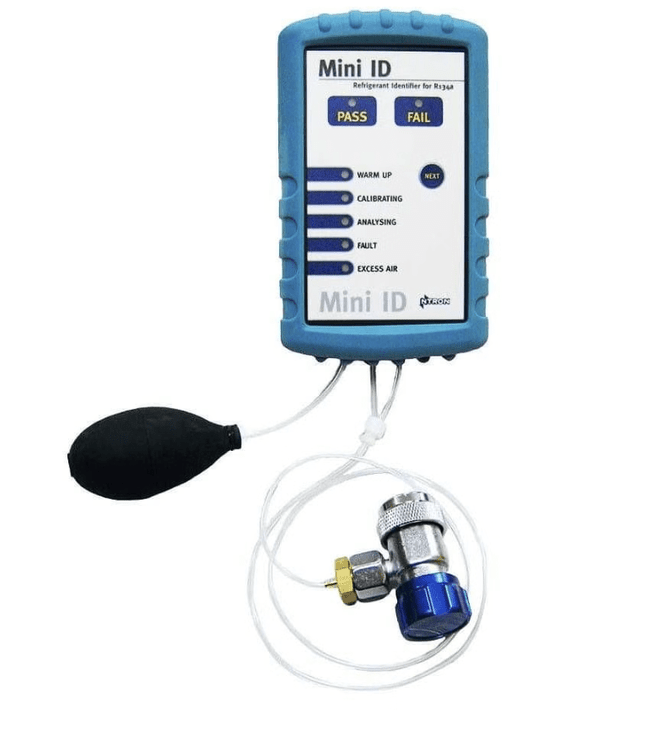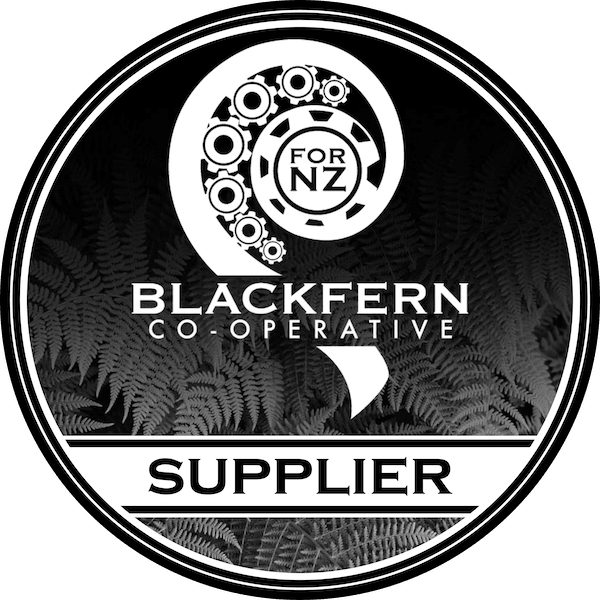The Risks of Using Hydrocarbon-Based Refrigerants in Automotive Systems
In the face of rising refrigerant costs, some individuals and businesses have been tempted to cut corners by using hydrocarbon-based refrigerants in automotive air conditioning systems. While this might seem like a cost-effective solution, the practice carries significant risks and can lead to serious consequences for both professionals and end users.
The Appeal of Hydrocarbon-Based Refrigerants
Hydrocarbon-based refrigerants, such as propane and butane blends, are often touted as inexpensive alternatives to traditional refrigerants like R134a or R1234yf. Their low cost and widespread availability make them attractive to those seeking to maximize profits or minimize expenses. However, these substances are not designed or approved for use in automotive systems, and their use can compromise safety and system performance.
Risks to Safety
One of the most significant dangers of using hydrocarbon-based refrigerants is their high flammability. Automotive air conditioning systems are not designed to handle flammable substances safely. In the event of a leak, these refrigerants can ignite, posing a severe risk of fire or explosion. This danger is amplified in the confined spaces of a vehicle, where an ignition source, such as a spark from an electrical system, could have catastrophic consequences.
Impact on Supply Chains
The use of hydrocarbon-based refrigerants has infiltrated supply chains, sometimes without the knowledge of professionals. Hydroflourocarbon (HFC) gasses are used in industrial areas such as commercial air conditioning systems, refrigeration systems and some medical devices but importers must not bring those gases in for automotive air conditioning systems. This not only jeopardises safety but also undermines the integrity of the industry. Professionals who have inadvertently used contaminated refrigerants faced costly repairs, damaged reputations, and potential liability issues.
Legal and Regulatory Implications
In New Zealand, the use of unapproved refrigerants in automotive systems is illegal as they do not comply with the Environmental Protection Authority’s (EPA) greenhouse gas emissions rules. In 2024 contaminated refrigerant cylinders were distributed and used by automotive professionals, leading to contamination of equipment and systems. Together with NZ Customs and Police, the EPA seized around a million dollars worth of illegally imported hydrocarbon-based refrigerants. While the legal issues are for the importer to face, the reality is that the automotive professionals who used it face the lion's share of risk with damage to their own equipment, their customers vehicles and the unthinkable increased risk of fire in an accident
Best Practices for Professionals
To protect themselves and their clients, professionals in the automotive industry should take proactive steps to mitigate the risks associated with contaminated or improper refrigerants:
Source Refrigerants from Reputable Suppliers: Purchase refrigerants only from trusted suppliers who provide certification of their product’s authenticity and compliance with industry standards.
Test Refrigerants Before Use: Invest in refrigerant analysers to verify the composition of refrigerants before introducing them into a system. This step can help identify contamination and prevent damage to equipment.
Educate and Train Staff: Ensure that all technicians are trained on the risks associated with improper refrigerants and the importance of adhering to industry guidelines.
Report Contamination: If contaminated refrigerants are identified, report the issue to the appropriate authorities and suppliers to help prevent further distribution.
Conclusion
While the rising cost of traditional refrigerants presents challenges, cutting corners by using hydrocarbon-based alternatives is a dangerous and short-sighted approach. The risks to safety, system performance, and industry integrity far outweigh any perceived savings. By adhering to best practices and prioritising compliance with regulations, professionals can safeguard their operations, protect their clients, and uphold the standards of the automotive industry.
A simple and quick reassurance is to test your vehicles and refrigerants for purity before either recovering a system or in the case of purchased refrigerants before filling your A/C station.
Our Neutronics MINI ID range can give you the answers before things get out of hand and offer peace of mind.
https://www.aecs.co.nz/shop/product/759466/mini-id-refridgerant-identifier--r134a/







